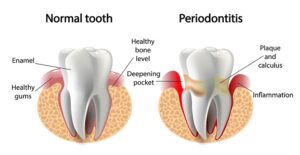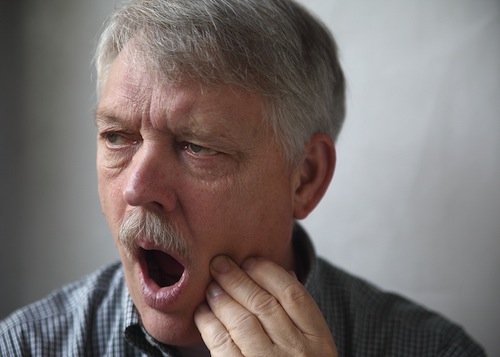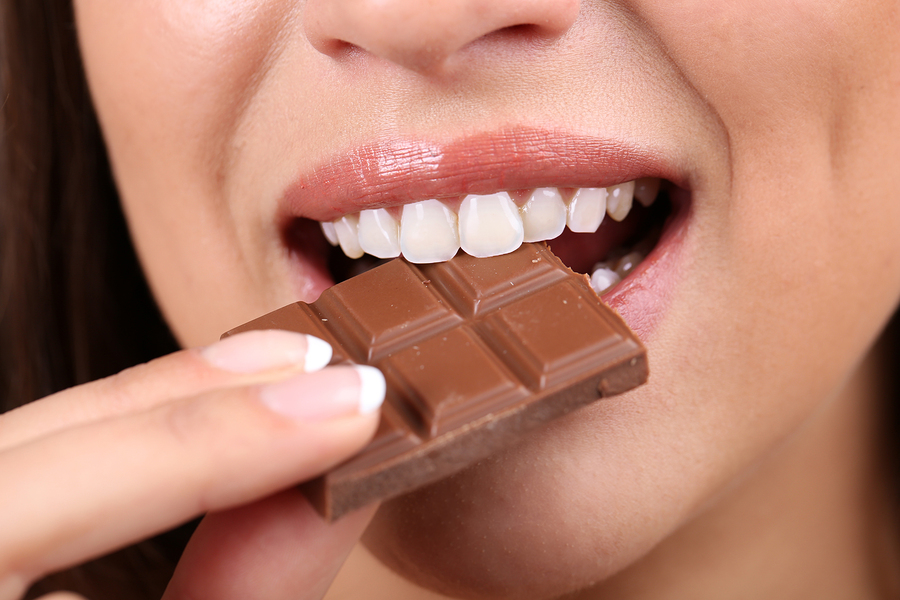
by Dr. Jacqueline S. Allen | Nov 13, 2017 | Blog, Endodontics, Endodontist, General Information, Root Canal
 Like most health-enhancing procedures, the technologies and techniques used to provide root canals have been steadily advancing, especially over the past few decades. Today’s root canal procedure is considerably easier on patients than it was in the 1980s, or even the 1990s.
Like most health-enhancing procedures, the technologies and techniques used to provide root canals have been steadily advancing, especially over the past few decades. Today’s root canal procedure is considerably easier on patients than it was in the 1980s, or even the 1990s.
Something that may surprise you, however, is that root canals have been around for well over a century. Here’s a brief list of historical milestones related to root canal procedures, to foster appreciation for how they have developed.
Important Dates In Root Canal History
- 1728 – Pierre Fauchard, a French physician regarded as the father of modern dentistry, authors the book “Le chirurgien dentiste,” which describes the existence of dental pulp.
- 1838 – American Edwin Maynard creates the first root canal instrument, which he fashions from a watch spring.
- 1847 – Gutta-percha is introduced as a material for filling dental canals.
- 1890s – Crowns are becoming increasingly popular as a dental restoration. Many require canal posts, which increases interest in endodontic treatments such as root canals.
- 1900 – The emerging imaging technology of X-rays is identified as an important tool for diagnosing tooth root problems.
- 1943 – The American Association of Endodontics is established to facilitate professional practice in this specialty.
- 1950s – After a half-century of controversy, research establishes that natural teeth needing root canals do not cause systemic health problems, leading to a renewed interest in endodontics.
- 1990s to the present – Endodontic root canal treatments receive an upgrade due to improved imaging techniques, the advent of rotary nickel-titanium files to clean canals, and use of new irrigating solutions.
“Root canals have never been a static procedure, with only ‘one right way’ to preserve a challenged natural tooth,” says Dr. Allen of the Phoenix Endodontic Group. “Endodontists in all eras have striven to improve the experience for patients and create successful outcomes.”

by Dr. Jacqueline S. Allen | Aug 31, 2017 | Blog, General Information, Patients
 Often times, men and woman question why they should care about their oral health. While many people focus on physical health, oral health tends to fall beneath the wayside. Oral health plays an incredibly important role in your physical health and should not be overlooked! Some might think a little gum bleeding is not so bad, but gum disease can lead to many severe problems. The severity of gum disease ranges from a mild type known as gingivitis to a more serious kind called periodontitis. The most severe cases of gum disease can result in tissue damage, bone loss, and even tooth loss. Do you think losing your teeth can simply be replaced by implants? It’s not that easy. Implants are not only expensive but often cannot be performed because of bone loss, one of the effects of gum disease. Because of this, the patient is forced to consider bridges or even dentures. Treatment of gum disease depends on a number of factors including the severity of the disease, the quality of your oral health care, and risk factors such as smoking, diabetes, and pregnancy. According to the American Dental Association (ADA):
Often times, men and woman question why they should care about their oral health. While many people focus on physical health, oral health tends to fall beneath the wayside. Oral health plays an incredibly important role in your physical health and should not be overlooked! Some might think a little gum bleeding is not so bad, but gum disease can lead to many severe problems. The severity of gum disease ranges from a mild type known as gingivitis to a more serious kind called periodontitis. The most severe cases of gum disease can result in tissue damage, bone loss, and even tooth loss. Do you think losing your teeth can simply be replaced by implants? It’s not that easy. Implants are not only expensive but often cannot be performed because of bone loss, one of the effects of gum disease. Because of this, the patient is forced to consider bridges or even dentures. Treatment of gum disease depends on a number of factors including the severity of the disease, the quality of your oral health care, and risk factors such as smoking, diabetes, and pregnancy. According to the American Dental Association (ADA):
Warning signs that can signal a problem:
- gums that bleed easily
- red, swollen, tender gums
- gums that have pulled away from the teeth
- persistent bad breath or bad taste
- permanent teeth that are loose or separating
- any change in the way your teeth fit together when you bite
- any change in the fit of partial dentures
Factors, which increase the risk of developing gum disease, are:
- poor oral hygiene
- smoking or chewing tobacco
- genetics
- crooked teeth that are hard to keep clean
- pregnancy
- diabetes
- medications, including steroids, certain types of anti-epilepsy drugs, cancer therapy drugs, some calcium channel blockers and oral contraceptives
What can you do about it now?
The main cause of gingivitis is dental plaque. In fact, dental plaque is the root of many oral health problems. If not removed regularly, plaque can accumulate between your teeth and around the gums. If you have gingivitis, you can normally restore your gum and oral health through improved teeth cleaning. The American Dental Association emphasizes the importance of “brushing your teeth twice a day, cleaning between your teeth daily, eating a healthy diet, and scheduling regular dental visits.” Even if you are diagnosed with gum disease, your dentist can design a treatment plan that includes professional cleaning to help you maintain good oral health.
Oral health is as equally important as physical health and must be cared for regularly. Consult your dentist right away if you suspect you have a problem. Gum disease is preventable and our team of dental experts can give you the care you need. To learn more about our services, or to schedule an appointment at Phoenix Endodontic Group, please call (602) 748-4190, or visit our website.

by Dr. Jacqueline S. Allen | Aug 24, 2017 | Blog, Endodontics, Endodontist, General Information, Phoenix Endodontic Group
 In 2001, Dr. Jacqueline S. Allen founded Phoenix Endodontic Group. Our firm has grown tremendously over the past decade and a half.
In 2001, Dr. Jacqueline S. Allen founded Phoenix Endodontic Group. Our firm has grown tremendously over the past decade and a half.
Over the last 16 years we have seen a lot of changes in the dental profession, technology and patient expectations. While flexibility is necessary when handling endodontic cases in today’s environment, it is equally important to stay true to the core values. Our core values are what brought Phoenix Endodontic Group so much success over the years.
Here are 3 important things to know about Phoenix Endodontic Group:
- Patient Focused: We recognize that the needs, care and treatment of our patients are our number one priority. From her first day in private practice, Dr. Allen’s philosophy is to “treat patients the way I want to be treated.” This idea is the cornerstone of our operation at Phoenix Endodontic Group
- State of the Art: At Phoenix Endodontic Group, we constantly invest in new technologies to keep ourselves on the cutting edge of endodontic therapy. Additionally, Dr. Allen spends a considerable amount of time continuing her education in the endodontic field. She believe strongly in learning and understanding the latest theories and techniques in the field of endodontics.
- Best in Class Care: Our team is focused on making sure you receive the best care. From appointment scheduling, insurance billing and post treatment care we are there to serve our patients and referring offices. Our goal is to make sure that every patient is “delighted” by the service and care provided by Phoenix Endodontic Group.
At Phoenix Endodontic Group, we feel that doing all of the “little things” correctly and attention to detail are two things that separate us from other endodontic dental offices. We are proud of our successes and our team’s dedication to providing top care for our patients. These first 16 years have gone by quickly and we look forward to the next 16 years with the same philosophy and commitment to excellence!

by Dr. Jacqueline S. Allen | Jul 5, 2017 | Blog, Endodontics, Endodontist, General Information, Phoenix Endodontic Group
Meet  Sarah Apostolakis. She is one of our many talented dental assistants that we have here to assist during procedures at the Phoenix Endodontic Group. Sarah has experience in periodontics, oral surgery, and general dentistry. She is a very active, outdoorsy person and is passionate about coming into work every day. She is great with caring for our patients and wanting them to get the best out of their experience here at the Phoenix Endodontic Group. She has great tips and advice for our patients about helping to improve oral health.
Sarah Apostolakis. She is one of our many talented dental assistants that we have here to assist during procedures at the Phoenix Endodontic Group. Sarah has experience in periodontics, oral surgery, and general dentistry. She is a very active, outdoorsy person and is passionate about coming into work every day. She is great with caring for our patients and wanting them to get the best out of their experience here at the Phoenix Endodontic Group. She has great tips and advice for our patients about helping to improve oral health.
What do you find most rewarding about being a dental assistant?
What I find most rewarding about being a dental assistant is changing someone’s fear of going to the dentist. My goal is to give every patient the best experience I can provide and to remove their fear of coming back.
What is the biggest piece of advice you have for patients to ensure good oral health?
The best advice I can give is – floss the teeth you want to keep!
There are a lot of individuals and research that say electric toothbrushes are better. Do you agree and why?
My opinion on electric toothbrushes is they can be a good tool if used properly. I always recommend using a soft bristled head to prevent damaging the gums and tooth. The best technique is to brush in small soft circles.
How did you become interested in the dental field?
I knew I wanted to be in the dental field since I was a kid. Going to the dentist was a fun experience for me.
What advice would you give people that are afraid of or dislike dental treatment? What would you say to ease those fears?
Most people’s fear of the dentist stems from a bad experience they had or heard of. It can be difficult to relax in a situation you feel a lack of knowledge or control. That is why I think communicating with the patient is so important. I like to assure we will not start until they are ready and comfortable and talk them through the procedure so they are informed about what is going on.
What is your favorite part of working with Dr. Allen?
My favorite part of working with Dr. Allen is how relatable and compassionate she is with her patients. Dr. Allen has undergone a lot of dental work herself which has given her empathy and understanding on what it is like to be in the chair. She treats every patient how she would want to be treated.
When you are seeing patients, what is the most common problem you see with their dental health or general dental care?
The most common problem I see in dental health is gum disease. Tartar and plaque build up under the gums and in between the teeth that can only be removed properly by a hygienist. It is easy to fall out of the habit of flossing and getting your teeth cleaned twice a year with our busy lives but it’s important for your oral health to make time.
Since one’s diet is said to influence their dental health, do you have any diet recommendations?
Diet does directly influence dental health. Acidic and sugary foods are the most harmful to the teeth. I love candy and oranges and eat them all the time but I always try to rinse my mouth out after. That way I do not leave an acidic or sugary environment in my mouth which can be harmful to my teeth and gums.
Do you have a favorite dental brand or product that you use at home?
My favorite dental brand is Colgate. I have never had issues with their products, but any toothpaste with fluoride and mouthwash without alcohol will work.
Take your oral health to the next the level with Sarah’s simple tips and tricks. Giving advice and making every patient feel comfortable when they come in for a procedure is why Sarah is a prized dental assistant at the Phoenix Endodontic Group. Make sure to keep your smile bright and healthy by visiting Phoenix Endodontic Group.

by Dr. Jacqueline S. Allen | Aug 24, 2015 | Blog, Endodontics, General Information, Root Canal
 When a tooth becomes infected, a root canal is often the treatment of choice to save it. Root canals have a very high success rate; however, sometimes challenges develop after the treatment that can indicate that the healing process is not proceeding as it should.
When a tooth becomes infected, a root canal is often the treatment of choice to save it. Root canals have a very high success rate; however, sometimes challenges develop after the treatment that can indicate that the healing process is not proceeding as it should.
According to Dr. Jaqueline Allen, an endodontist with the Phoenix Endodontic Group, “Root canal healing is identified by the elimination of symptoms either immediately or over time, the elimination of swelling, and bone growth over the next six months to two years, in areas where abcesses have eliminated bone.”
Dr. Allen, who also practices with the Phoenix Endodontic Group, discussed several reasons that improper healing can occur after a root canal.
“If the tooth is not properly restored after the root canal treatment, either by your dentist or the specialist, it may begin leaking into the root canal space and become re-contaminated by bacteria,” she said. “If a patient’s overall health causes them to heal more slowly – if they have uncontrolled diabetes, for instance – that may affect healing as well.”
Identifying improper healing
After your root canal treatment, you will partner with your endodontist and/or dentist to be on alert for symptoms of two conditions that can signal improper healing is occuring: inflammation and infection.
Prolonged pain is a key indicator of improper root canal healing, with or without swelling. If you experience pain that continues (or re-develops) after the first few days after your root canal treatment, contact your endodontist immediately.
Other post-treatment symptoms that should prompt a call to the endodontist include a visible swelling inside or outside of your mouth, your bite feeling uneven, an allergic reaction (hives, rash, itching) to any medication you’re prescribed, or a return of the symptoms that led to the root canal being performed in the first place.
Dr. Allen advises patients, “Any continued pain after a root canal procedure should be addressed as soon as possible. This is true even though some teeth that have had root canal treatment may heal more slowly, so that there can be minor discomfort for even months following treatment.”

by Dr. Jacqueline S. Allen | Feb 16, 2015 | Blog, Endodontics, Endodontist, General Information
 A day in the life of your Phoenix Endodontic Group brings many different types of cases into the office. One common visitor who comes in for Dr. Allen’s expertise is the candy connoisseur. You may know what too many sweets can do to your waistline, but do you know what effect it may have on your teeth?
A day in the life of your Phoenix Endodontic Group brings many different types of cases into the office. One common visitor who comes in for Dr. Allen’s expertise is the candy connoisseur. You may know what too many sweets can do to your waistline, but do you know what effect it may have on your teeth?
Sugar is a highly toxic substance to your tooth enamel and is present in many types of food and drinks. Soda, fruit juices, cookies and candy are all prime culprits that cause tooth decay, especially if allowed to linger in your mouth. Ingestion of sugar promotes the plaque that eats away at your teeth. A particularly bad type of sweet is sticky candy. Soft sticky candies often get caught between the teeth and if you aren’t a good flosser, can cause cavities in that area, says Dr. Allen.
Another dental problem could be caused by eating hard candy. Extremely hard candies that are “chewed” can also cause damage (cracks) to the tooth, explains Dr. Allen. This type of damage allows bacteria to invade the tooth and infect the inner pulp and root system. Eventually a problem of this nature may require your endodontist to perform a root canal. If you are going to consume hard candies, avoid biting or chewing them, especially with your more vulnerable front teeth.
As well-intentioned as patients are in their desires to follow a healthy diet and practice good dental habits, no one is perfect in either arena. If you are going to enjoy a sugary snack, then always attempt to brush afterward. If that is not possible, then rinsing your mouth out with water can help, but minimally, states Dr. Allen. Be as diligent as possible in flossing after sticky treats.
Sugar is acceptable in moderation, especially if you practice good dental habits when you eat sweets. However, it is far more common that it will cause problems with your teeth. If you are a lover of these kinds of treats, talk to Dr. Allen, your Phoenix endodontist, for advice on how to prevent dental damage.

 Like most health-enhancing procedures, the technologies and techniques used to provide root canals have been steadily advancing, especially over the past few decades. Today’s root canal procedure is considerably easier on patients than it was in the 1980s, or even the 1990s.
Like most health-enhancing procedures, the technologies and techniques used to provide root canals have been steadily advancing, especially over the past few decades. Today’s root canal procedure is considerably easier on patients than it was in the 1980s, or even the 1990s.





 Sarah Apostolakis. She is one of our many talented dental assistants that we have here to assist during procedures at the Phoenix Endodontic Group.
Sarah Apostolakis. She is one of our many talented dental assistants that we have here to assist during procedures at the Phoenix Endodontic Group. 


